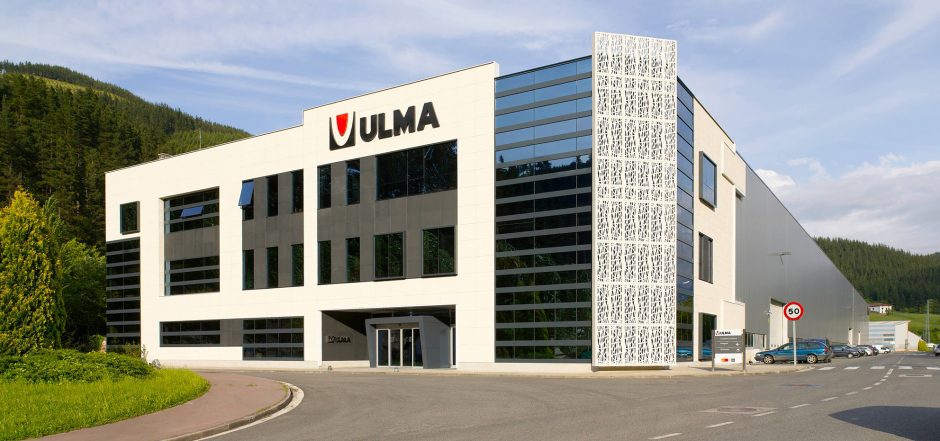Ulma Group and Orona Cooperative both voted to leave at the end of last year, after seeking more autonomy from the federation’s management

One of the world’s leading co-op federations, Mondragon Corporation, suffered a blow at the end of last year when two of its key member organisations voted to leave.
Ulma Group and Orona Cooperative both hosted votes on 16 December which saw their partners opt for the exit door. The move follows a period of tension with both co-ops wanting more autonomy – and means the co-ops will cease contributions of 10% of their substantial profits to a common fund, operated by Mondragon to sustain member co-ops which are going through lean times.
Both organisations are looking for ways to continue collaboration with Mondragon, and the Spanish press has reported that they will continue to insure their worker-owners through the federation’s Lagun Aro system. They will also maintain their collaborative work with Mondragon University and other co-ops in the federation.

Their departure is a significant blow for the Federation – held up round the world as an example of what co-operation can achieve, and a business which has allowed its corner of Spain’s Basque Country to buck national trends for unemployment and other economic woes.
Ulma is a group of nine co-ops with a presence in 81 countries and a 60-year market presence in a wide range of sectors: Ulma Greenhouses, Ulma Architectural Solutions, Ulma Maintenance Services, Ulma Conveyor Components, Ulma Embedded Solutions, Ulma Handling Systems, Ulma Construction, Ulma Packaging and Ulma Advanced Forged Solutions.
Elevator manufacturer Orona is another global name; between them, the two organisations take away 11,000 of Mondragon’s 80,000-strong workforce – shrinking it by 13% – and 15% of the group’s sales go, adding add up to more than €1,700m in billing.
Orona has 1,700 members and a turnover of more than €800m, while Ulma employs 5,426 people with a turnover of E910m and a profit of €75m.
The vote follows a failed bid by Orona and Ulma to introduce an alternative governance model to guide the relationship of member co-ops with Mondragon’s central services. The proposal was rejected in June and no discussion was permitted at the Federation’s annual congress in November because it had been submitted to late.
Orona and Ulma complained of “pressure” and “interference” and have now opted for “new relational framework” with Mondragón.
It is not the first exit in Mondragon’s history – in 2008, worker-owners of the metal casting co-op Ampo and coach maker Irizar voted out. Nor is it the first crisis. Between 2002 and 2007, member co-ops Fagor and Eroski issued bonds, which they advertised as safe deposits, but they were classed by courts as riskier debt instruments – and when their value was hit in the wake of the 2008 crash, the bond-holders sued.
The financial crisis also brought a shock casualty for the federation: in 2013, white goods maker Fagor Electrodomésticos filed for bankruptcy to renegotiate €1.1bn of debt, followed by the bankruptcy of the whole Fagor Group. This led to the €42.5m sale of Fagor in July 2014, to Catalonian company Cata. Fagor’s collapse brought a bitter dispute, with workers occupying its Edesa plant, south of Bilbao.
Related: How Mondragon is helping Preston to develop a co-operative ecosystem
There has also been criticism in some parts of the co-op movement of Mondragon’s global supply chain, with its more than 100 overseas operations structured as conventional businesses. Mondragon stresses there are practical obstacles to setting up foreign subsidiaries as member co-ops – particularly with regard to its safety net that allows redundant workers to be redeployed from one co-op to another – a facility Ulma and Orona will retain.
Mondragon has expressed ongoing interest in converting its overseas operations to worker ownership, and in converting the 35,000 non-member retail workers at Eroski (out of a total of 50,000) to membership status. These are on the backburner while the federation rides out the economic disruptions from Covid-19 and the Ukraine conflict which have hit profits at Eroski and the Caja Laboral credit union.
But while the latest furore is not unprecedented, it has prompted press speculation in Spain that more is to come. “From now on it will be seen if the scope of the crisis of the co-operative giant goes beyond the figures,” wrote online paper elDiario, “if the very management model of the corporation based on solidarity between the co-operatives is called into question, if the departure of Ulma and Orona is the beginning of more of the big leaks – or if, on the contrary, Mondragon reinvents itself … and emerges stronger and with more united companies.”
The federation’s management said the news means that “Mondragon begins a new stage,” while the CEO of supermarket chain Eroski – one of its key members – defended the right of co-ops to leave if they wished.
Rosa Carabel told a Radio Euskadi interview that she wished the co-ops had stayed but added: “We have to respect the decisions that Orona and Ulma can make because they are sovereign decisions.”
However, Eroski remains committed to the Federation, she added. “Eroski understands that the co-operatives that are in the corporation share the same values of cooperation and joint learning. Between all of us we have the capacity to enrich each other and we want the voice of cooperativism to be loud and clear.
“What we want from the corporation is that we are all there, but if they decide to leave it, the corporation will continue.”
With thanks to thenews.coop
